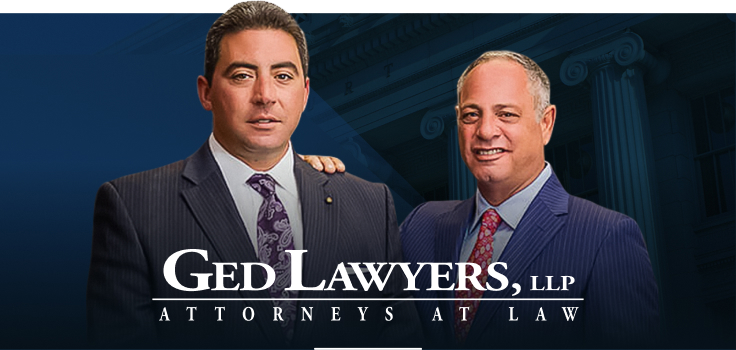
If your car hydroplanes before an accident, you can be liable for damages. If you were speeding or maneuvering the vehicle in a way that would increase your chances of hydroplaning, that factor could be considered when determining who is responsible for the crash. Still, you can consult a Florida personal injury attorney about your options in a hydroplaning accident.
In Florida, we are very familiar with driving during or after serious weather occurrences, often on wet pavement. Many of us have had the experience of skidding over a wet or slick road surface, causing a temporary loss of control over the steering and braking of the car. While hydroplaning can be concerning at best, being involved in a car accident because of it can be downright terrifying. But if you were out of control due to no fault of your own, can you be held liable in an accident caused by your car hydroplaning?
What Is Hydroplaning and What Causes It?
Hydroplaning occurs when a vehicle slides uncontrollably on a slick surface, such as a wet road.
Car tires have treads specifically designed to move water out from beneath and away from them. This allows optimal traction with the road surface and minimizes slipping, sliding, and hydroplaning. When a car’s tires cannot move water away fast enough or gain traction with the road surface, pressure at the front point of the tire causes it to hover above the road surface and takes away the driver’s ability to steer, brake, or otherwise control the car in any way.
Roads do not have to be saturated with water for a vehicle to hydroplane. When the surface of the road is even minimally wet, it mixes with accumulated oil that has built up on the surface of the road. This creates highly slippery conditions, especially for vehicles traveling at high speeds. It is these moments that create conditions for hydroplaning.

Three Factors Can Contribute to a Hydroplaning Scenario. These Are:
- Speed: As speed increases, the traction with a wet road is significantly reduced.
- Tread depth: The deeper the tread, the more able a tire is to remove water from under and around it.
- Water depth: The deeper the water you travel through, the quicker the tires can lose traction. But a thin layer of water can be just as destructive.
Consequently, as careful as you may be driving on slick and wet pavement, you may be caught in a hydroplane scenario.
Who Is Liable in the Case of a Florida Hydroplaning Car Accident?
Fortunately, in Florida, we have no-fault laws, so the first place an injured party will go for compensation after an accident is to their own insurance company. But in cases of severe injury, this coverage is not always enough to cover costs. In this case, the liable party will be the next source of compensation.
Depending on the circumstances, the driver of a hydroplaning car is usually held responsible in a car accident, but other parties can be held liable. These include:
- Other drivers may have created a scenario forcing you to react quickly, causing your car to hydroplane.
- Municipalities and state governments must keep roadways safe and well-drained. If water has collected on a road due to a design flaw or inadequate maintenance of drainage systems, they may be held responsible for accidents that ensue.
- Tire manufacturers that put defective products into the marketplace may also be held accountable in an accident if the tires can be shown to have had inadequate treads or another design flaw.
If you have been involved in an accident caused by your car hydroplaning out of control, it is critical to get the assistance of a Boca Raton car accident attorney to ensure you protect your legal rights.

What You Can Do to Avoid Hydroplaning Accidents
You can guard against hydroplaning and protect yourself while on the road. Taking precautions can help you avoid being in an accident where you could be held liable for damages that occur if your car hydroplanes.
- Make sure your tires have the proper inflation. Low tire pressure can increase the chances of having a Florida hydroplaning accident.
- Services your brakes regularly. An inability to stop can also make it harder to control your vehicle as you navigate a slick or wet surface.
- Avoid following other vehicles too closely. If you must stop suddenly, you will have more space to do so and possibly avoid hitting another vehicle.
- Make sure other drivers and road users can see your vehicle. Turn your headlights on in good and bad weather.

Getting Legal Representation After a Hydroplaning Car Accident
If your car hydroplanes and gets into an accident, you can get the advice of a legal advocate. Leaving the matter up to insurance companies is never in your best interest. At GED Lawyers, our car accident attorneys will thoroughly investigate the hydroplane accident, often involving professional accident recreation specialists. We will obtain the official police report, statements from witnesses, video surveillance, and other evidence to understand and prove who was at fault for the accident to ensure all liable parties are held accountable.
Accidents involving hydroplaning are typically not the fault of one party alone, and our comparative fault laws allow all at-fault parties to share liability. Call us at (561) 562-4170 or contact us online for a free consultation to discuss your case.
